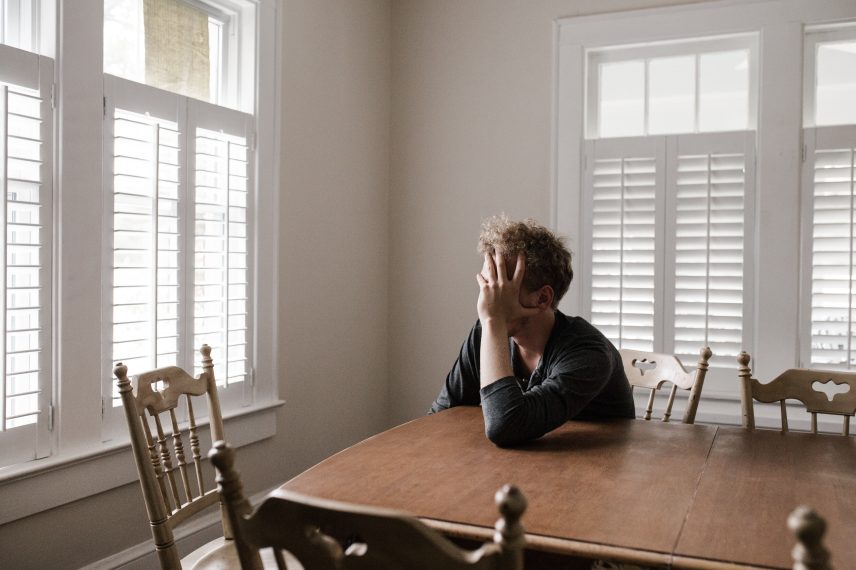We often mistake addiction as just alcohol consumption and drug use. However, this mental health condition is more of a spectrum of uncontrollable habits ranging from gambling to even ordinary activities like exercising and eating. According to the book Theory of Addiction by Robert West and Jamie Brown, addiction is a neuropsychiatric disorder where one loses control over the consumption of a substance or a behavior, despite harmful consequences[1]. This will eventually lead to the deprivation of liberty that increases exponentially over time. With social-distancing becoming an enforced norm, millions of people who are struggling and recovering from substance abuse issues are put at risk.
Addiction is a neuropsychiatric disorder where one loses control over the consumption of a substance or a behavior, despite harmful consequences.
Theory of Addiction (2013)
We are all social creatures who consider love and belonging as a basic need. This craving for connecting with others is more apparent with people who are struggling with mental illness. The social distancing mandate and stay-at-home orders create an absence of this fulfillment, triggering psychological problems like stress, anxiety, clinical depression, suicidal thoughts, eating disorders, substance abuse, and other addictive behaviors.
Many of us are constantly worrying about catching the virus. Some are in the fear of losing their jobs and others about paying their bills. All these stressful circumstances can affect our mental wellbeing and if not dealt with, it could lead to lasting mental health issues[2].
Here are some of the mental health warning signs that you should look out for:
Changes in mood
We all experience sadness, anxiety, and stress. However, if social isolation is causing quick and big shifts in your emotions, then it is important to look into why you are feeling that way. Mood changes can be a sign of underlying conflicts.
Shifts in sleep habits
Any increase or decrease in your sleep time might be your mind signaling you about the stress that it is going through. Exposing yourself to too much blue light from your electronic devices can also affect your sleeping patterns. You can follow some simple steps to get quality sleep.
Difficulty in concentration
The sudden change in our daily routines can affect some of the day-to-day activities. However, it should not be causing any variations to our daily needs like taking a shower, finishing your household chores, or doing things for your kids. If you are having trouble managing your emotions or if these emotions are making it difficult to function properly, then it can be a serious sign that your mental health needs attention.
Underlying distress can sometimes cause upsets in your appetite.
Upsets in food habits
Locked down from the outside world can drive you into boredom eating. It is a severe food habit and can damage you both physically and mentally. On the contrary, underlying distress can sometimes cause upsets in your appetite as well. Practice good food habits and ensure that your body and mind are fit and strong.
How can we overcome substance abuse problems?
Many people believe that addiction is a myth and they can quit anytime they want. Unfortunately, due to years of engaging in addictive habits, it is difficult for anyone to completely quit a behavior all of a sudden[3]. With the pandemic demanding social isolation, these addictive behaviors are suddenly forced to stop.
Quitting by choice can feel liberating and empowering at first. However, being forced to do so can be painful, difficult, and frustrating. Whatever the case may be, keep in mind that there is no right way to feel when quitting addictive habits. Withdrawal symptoms and relapse triggers will hit you no matter what and if you were forced into it, it is only going to make it difficult.
The lack of drugs and alcohol can lead to self-harm, suicidal thoughts, and other violent behaviors.
Relapse triggers can have deadlier consequences during the lockdown, especially people with a history of substance abuse. The lack of drugs and alcohol can drive them into self-harm, suicidal thoughts, and other violent behaviors. They can also seek and try out for even more harmful alternatives. On the other hand, lockdown can also affect people without any reported addictive habits. Loneliness, unemployment, increased spare time and family dynamics can easily fuel new addictions.
Some of the simple ways in which we can manage and overcome these withdrawal symptoms and relapse triggers are the following
Making the decision to quit
The most important and foremost step on your road to recovery is making yourself understand the needs of quitting a bad habit. Acknowledge all the ways in which addiction can harm your wellbeing and make a list of the positive changes that you want to make. This will be your guiding force during recovery.
Find the correct addiction treatment options
Not all addiction treatments are meant for everyone. These recovery programs can also change according to the type and intensity of the addiction you are in. So, take it as a task to fight the right treatment option for you. This will help you in many ways including getting an overview of the whole process and also to cultivate a sense of purpose and aim to your recovery.
Healthy ways to cope with stress
Stress is one of the immediate problems that you will have to address after quitting an addictive behavior. Once you are sober, underlying negative feelings will start to get projected as stress, loneliness, frustration, anger, shame, anxiety, and hopelessness. Self-isolation and social distancing will only multiply these emotions. During such circumstances, never hesitate to seek support from people who care for you. Find ways to address these feelings as they arise and teach yourself to stay calm and forget the issues that bother you.
Build a meaningful drug-free life
Relapse triggers can crawl back into your life more often than you think. Fighting and overcoming them can thus become a huge task. However, if you can build a meaningful life with a purpose, then you will find a strong motive to fight against addiction and other mental health problems accompanying it.
Where To Get Support For Addiction Issues?
Online resources, virtual meetings, and helplines can sound distant and out of reach for many. The truth is that these platforms can provide support to mental health problems and addiction issues- especially during the pandemic lockdown.
Here are some of the platforms that provide support online.
- Alcoholics Anonymous
- Cocaine Anonymous
- Mental Health America
- National Eating Disorder Association
- Narcotics Anonymous
- National Institute on Alcohol Abuse and Alcoholism
- Overeaters Anonymous
- SMART Recovery
- National Institute on Drug Abuse
- National Institute on Mental Health
If you are looking for hotlines or helplines, there are many options for that as well.
- Substance Abuse and Mental Health Services National Helpline: 1-800-662-HELP
- National Alliance on Mental Illness Helpline: 1-800-950-6264
- National Suicide Prevention Lifeline: 1-800-273-8255
- Partnership for Drug-Free Kids: 1-855-378-4373
- National Eating Disorder Association Helpline: 1-800-931-2237
There are also mobile apps that can help you in your fight against addiction and other mental health issues. Here are a few:
- Better Help: help you find a licensed therapist.
- Headspace: offers free mediations
- MDLiv: online counseling services, psychiatrists, and other medical doctors.









